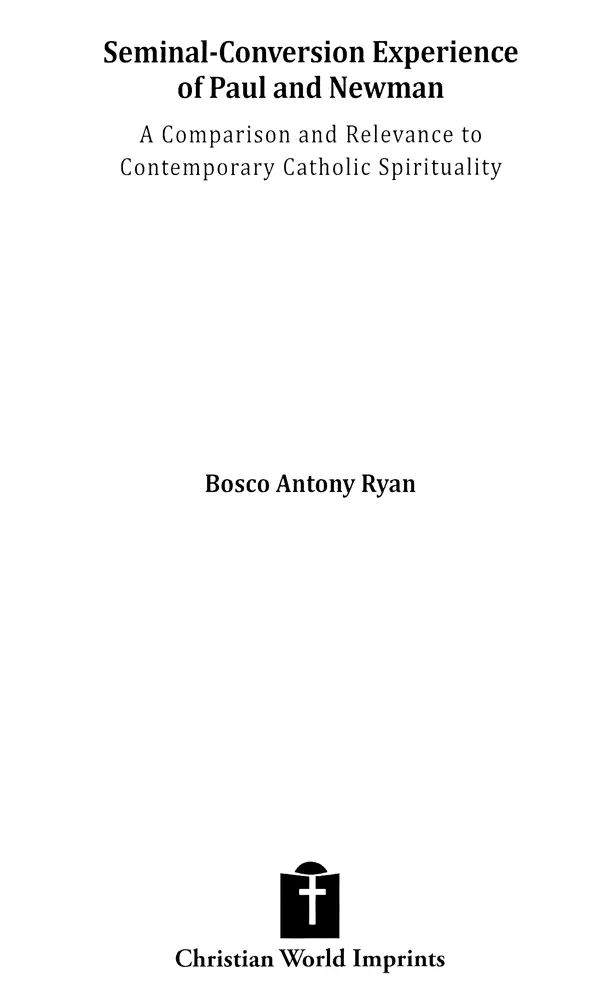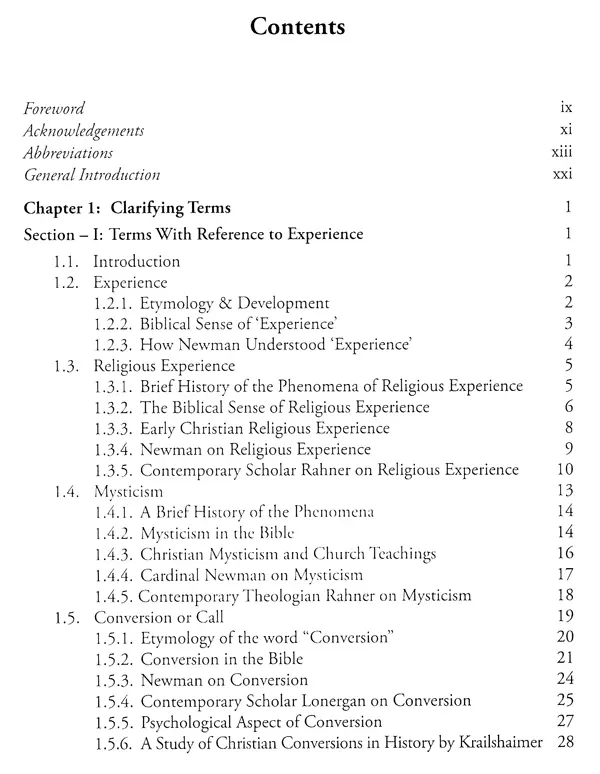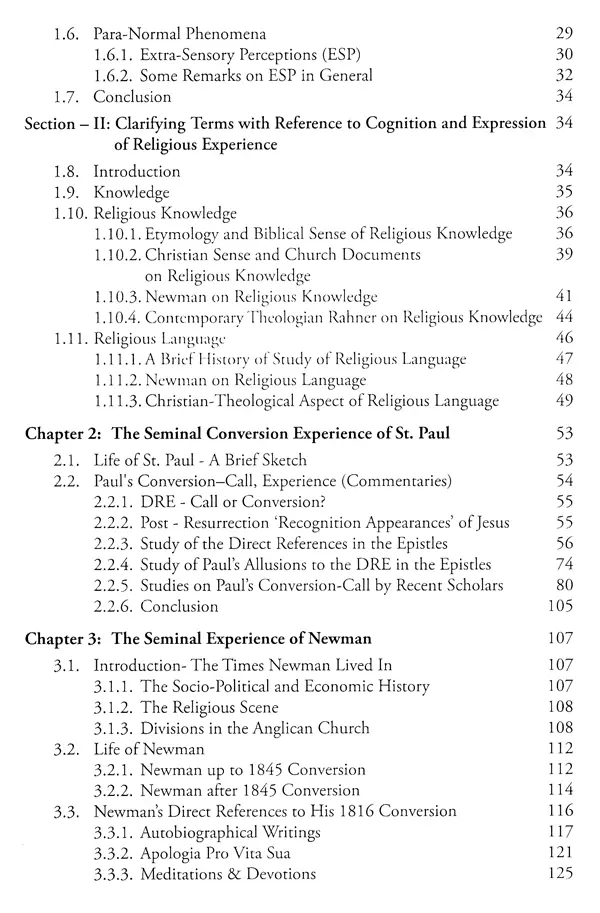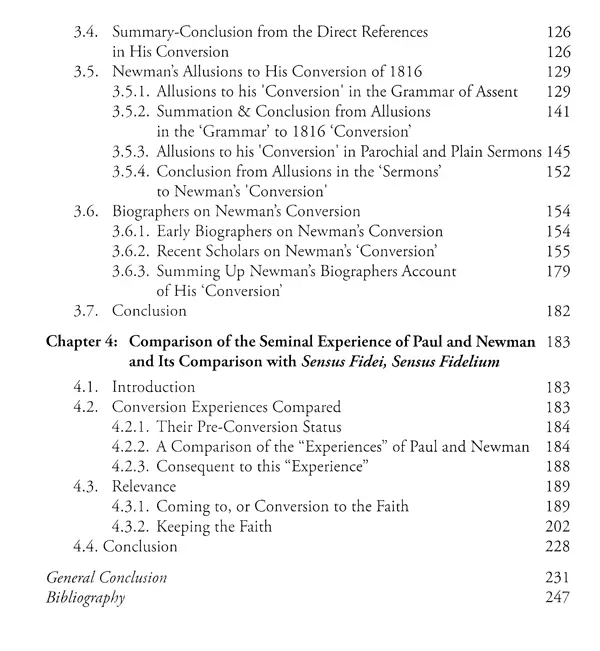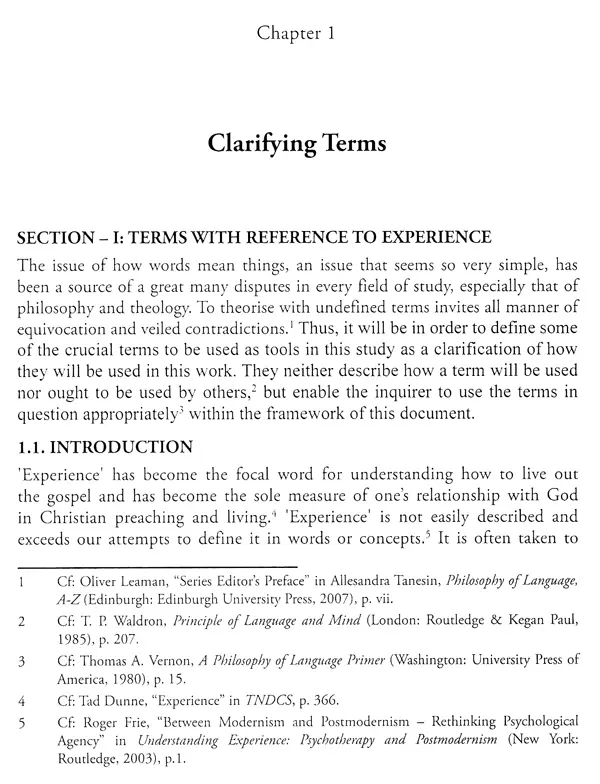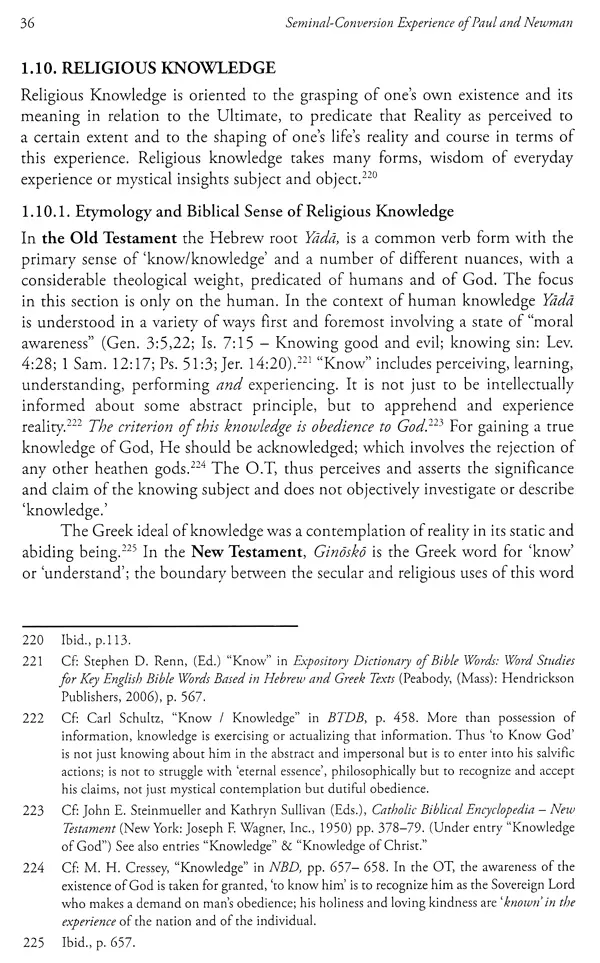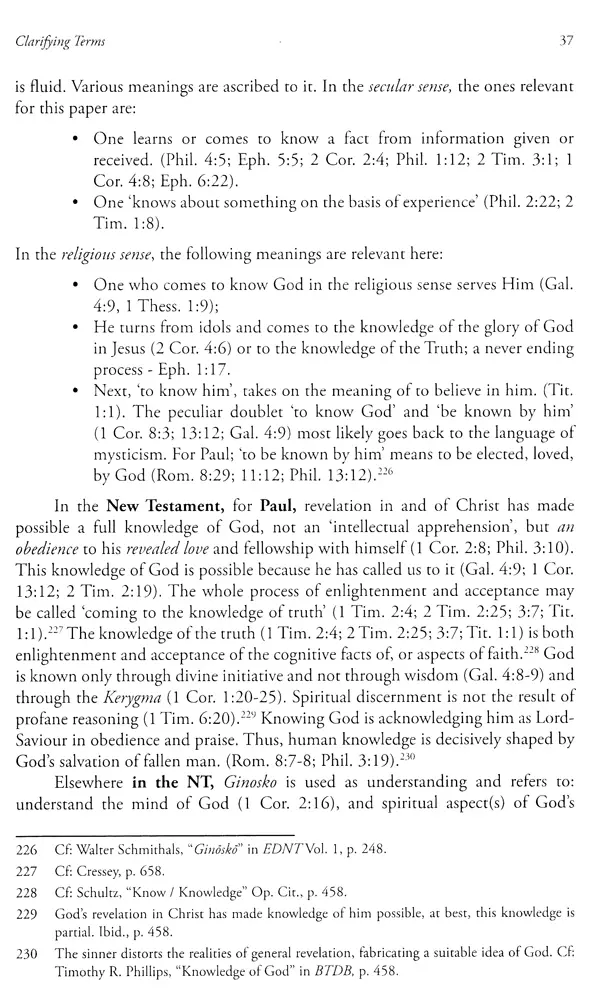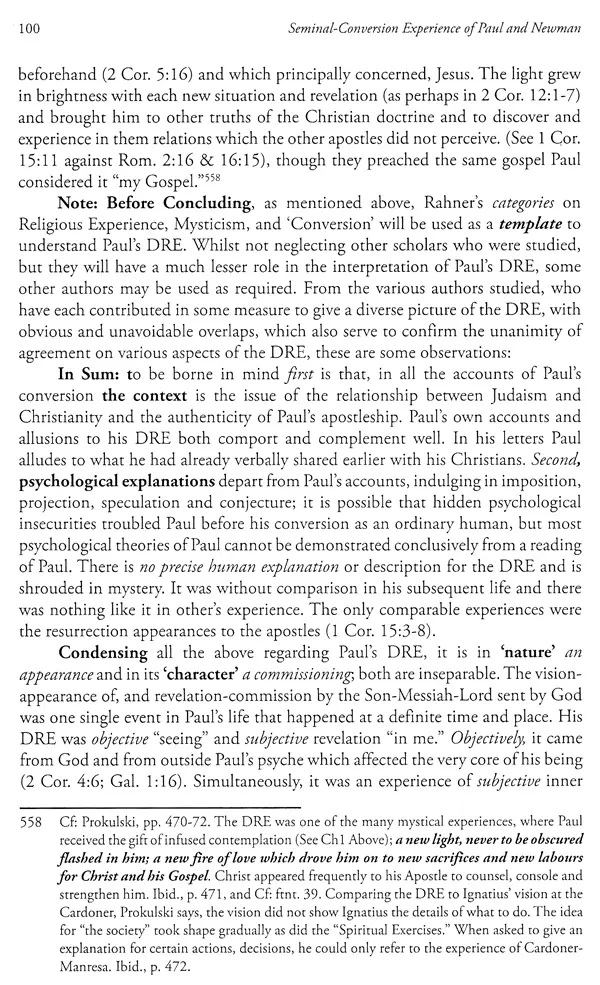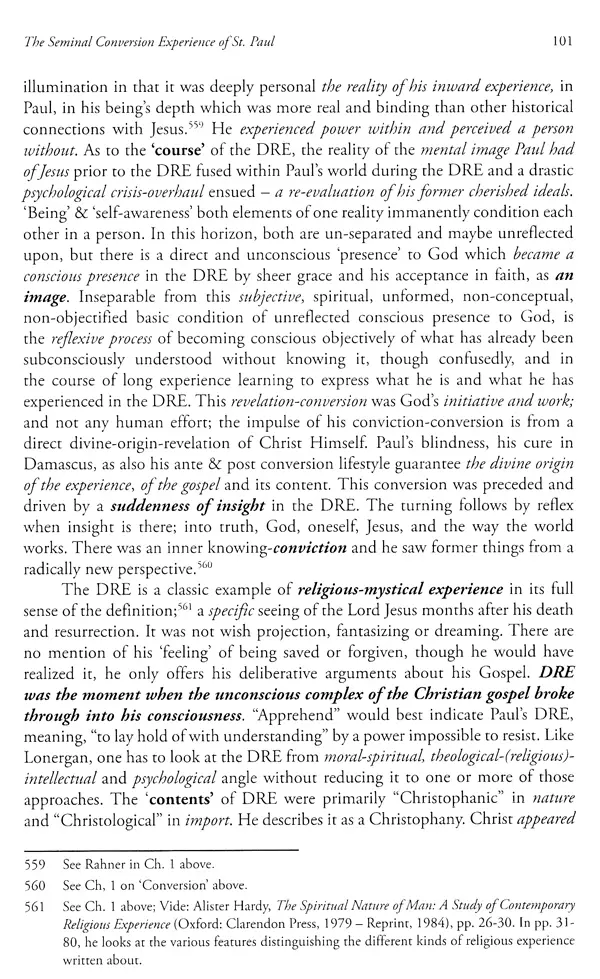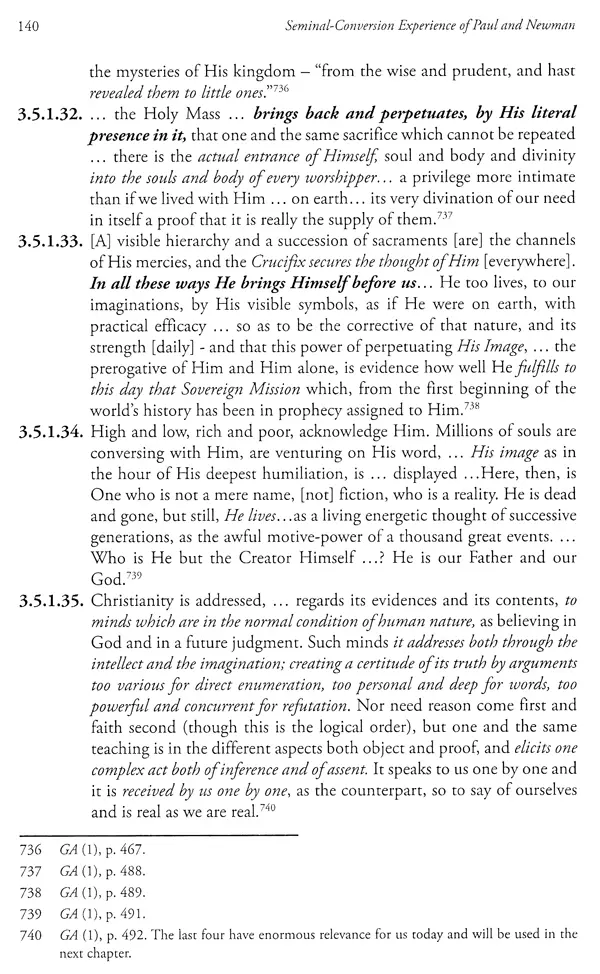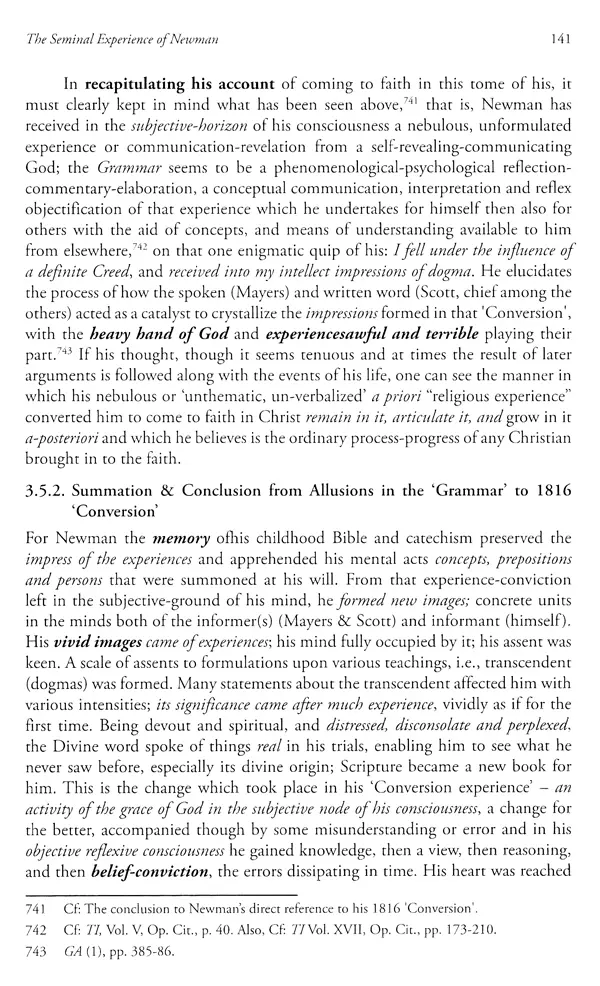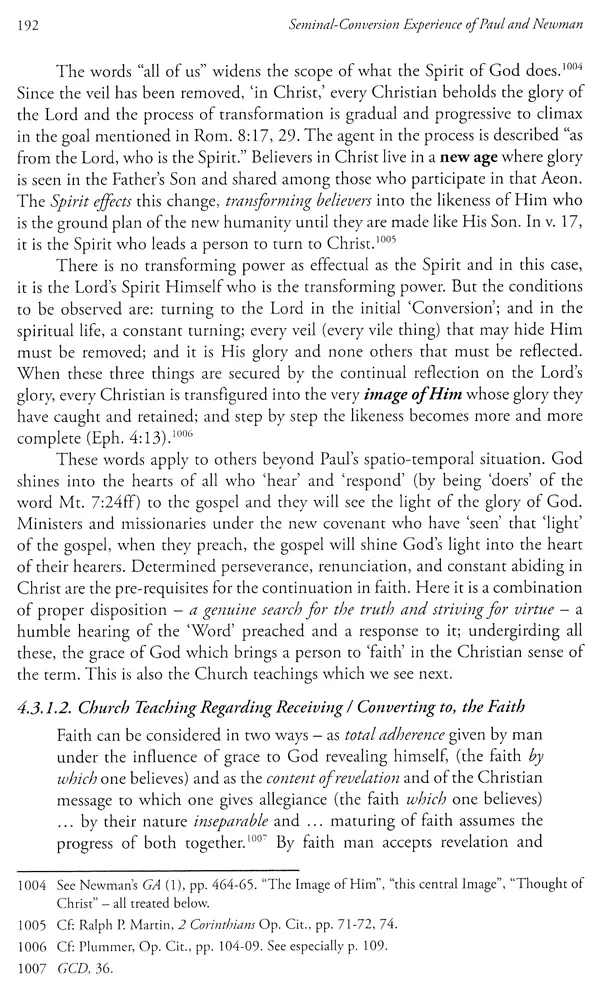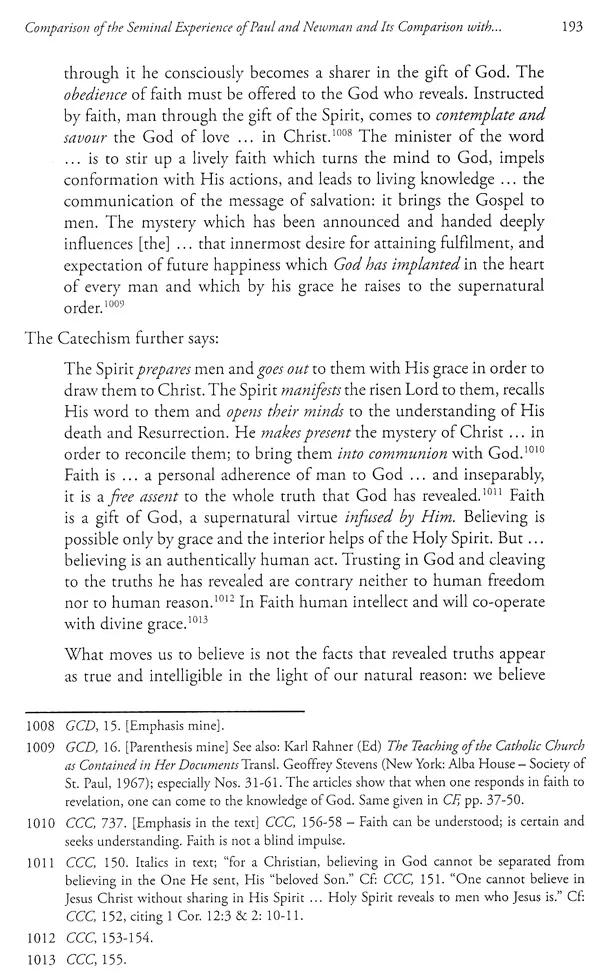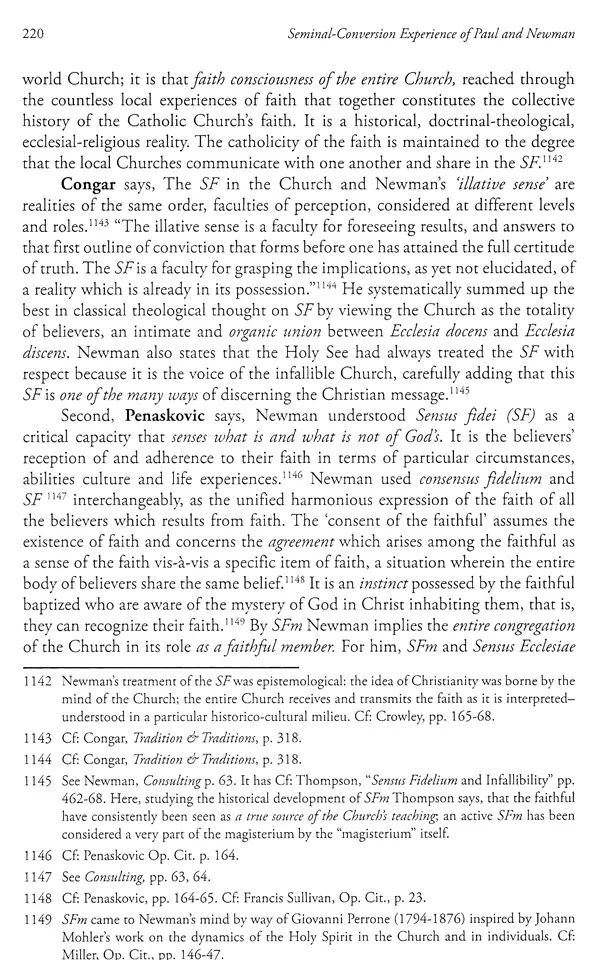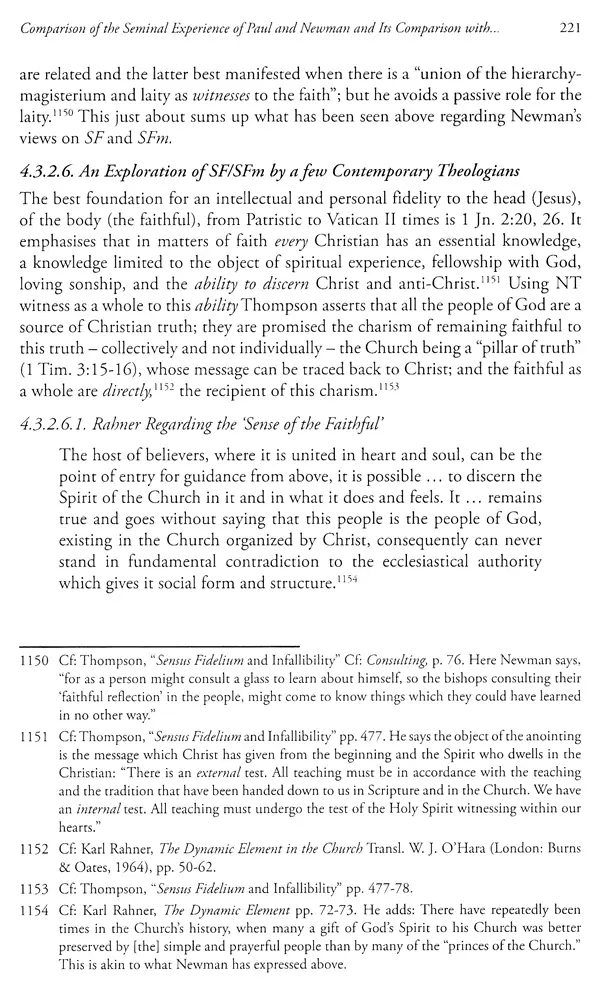
Seminal-Conversion Experience of Paul and Newman (A Comparison and Relevance to Contemporary Catholic Spirituality)
Book Specification
| Item Code: | UAZ991 |
| Author: | Bosco Antony Ryan |
| Publisher: | Christian World Imprints, Delhi |
| Language: | English |
| Edition: | 2021 |
| ISBN: | 9789351485643 |
| Pages: | 311 |
| Cover: | PAPERBACK |
| Other Details | 9.50 X 6.50 inch |
| Weight | 480 gm |
Book Description
"God experience," "Conversion experience," "Religious experience" are terms or topics that are much talked about and sought after in the present times especially in the Church. Such "experiences" have been undergone by a few in the course of church history, and no doubt truly experienced by those few; these worthies, have become saints and luminaries in the church. It has always intrigued the author, whether such "experiences" are the "norm", which is obviously not the case. If so, how does the "ordinary" Christian come into the faith and remain in it? How can he come to the convictions of the contents of the faith? "Were the experiences of Paul and Newman objective or subjective?" Did such "experiences" have a commonality among them? Are such "experiences" relevant to the present day Catholic, to become devoted and remain dedicated all life long? These are some of the questions explored in this work, and some answers arrived in the comparative study of St. Paul's and Cardinal Newman's seminal "conversion experience."
Fr. Bosco Antony Ryan, is a priest of the archdiocese of Madras- Mylapore for the past 20 years; 19 of which have been spent teaching in the major seminary of the diocese, during which he also completed a Masters' and Doctoral degree in "Spiritual Theology".
Any conversion experience is unique and also personal. It is indescribable and one uses words representing concepts to convey to others what one has experienced but the person normally finds that words fail to express what was felt. It would also happen in the case of some that they are enlightened and a faith conviction gets hold of them even without their striving for it or asking for it. It is purely a gift of God, a Grace and a wordless communication to the individual that goes beyond adequate explanation. It is a gift given to the individual for the sake of others and not merely for oneself.
St. Paul of Tarsus and the recently canonized Cardinal St. John Henry Newman of England are two examples of such persons who have gone through conversion experience. Both of them were deeply obedient to the Church community and the approval of the Church authority or Magisterium as it is called. The author of the present volume has undertaken a difficult task of comparing these two saints separated by so many centuries and who yet coincide in their basic experience of seminal conversion."
One could also ask whether such experience never takes place in the life of other Christians today. Well, it is a matter of Church history that has seen many others with similar experiences down the centuries. Perhaps St. Augustine of Hippo could be another well-known example. Should we stop and say that there are no more such cases today? The author in the title itself has expressed it through the declaration that his study is at the same time to see its 'relevance for contemporary Catholic Spirituality. I wonder if the author himself is writing his autobiography through this, since conversion is at times a deep secret known to God and the individual. I also like the way the author has reverentially mentioned the Magisterium and submission to its judgement in authenticating those who have come forward to express their experience in their words and actions. This is necessary since experience is subjective and unique and its objectivity needs to be in line with the accepted norms of faith or 'regula fidei' that Tradition jealously guards.
Over the past few years, "fake news" has become an accepted part of life, of an already sceptical disbelieving world. People no longer try to discern fact from fake-fiction, but it has become a fashion either to go purely by reason or by 'feeling-experience. "Tallacies do not cease to be fallacies because they become fashions," said G. K. Chesterton and in these times, more than ever, fallacies about Catholic Christianity abounds, both among its ardent adherents and those who abhor it. Before beginning this study, one must be aware of the various types of "fake news" or fallacies prevailing amongst the "believers. Now, the times and situation predicted by St. Paul:
"For the time will come when people will not tolerate sound doctrine but, following their own desires and insatiable curiosity, will accumulare teachers and will stop listening to the truth and will be diverted to myths." (2 Tim. 4:3-4)...no longer be infants, tossed by waves and swept along by every wind of doctrine arising from human trickery, from their cunning in the interests of deceitful scheming (Eph. 4:14).
as also our Lord's dire predictions :
"See that no one deceives you. For many will come in my name, saying, I am the Messiah, and they will deceive many. And then many will be led into sin; many false prophets will arise and deceive many;" (Mt. 24:4-5; 10-11).
seem to be upon us, as also Newman's recognition of a rot setting into age old Christian religious beliefsand practices and his astoundingly accurate prophecies of future infidelities-perversions of the faith, listed out below. On the 'infidelity prevalent in his time, he predicted it in a greater measure in the future. In one of his sermons, he talks about rational-relative religion, which is prevalent in the educated-affluent section of the Christians even now.
Book's Contents and Sample Pages
